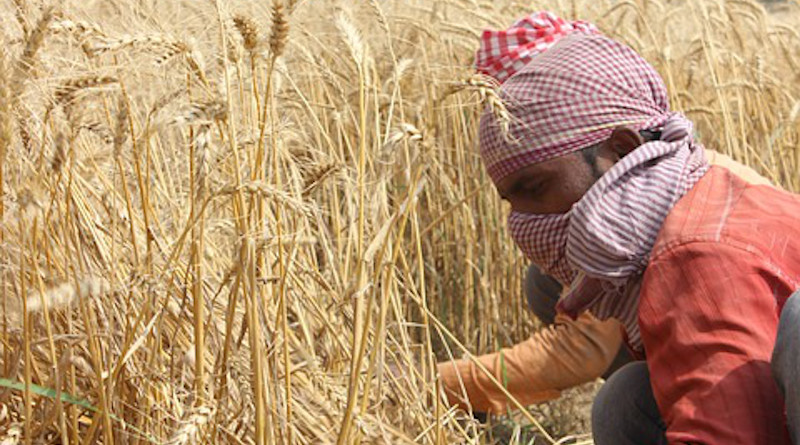Revamping Pakistan’s Agriculture Sector: Challenges And Way Forward – OpEd
Pakistan’s agriculture sector plays a crucial role in the country’s economy, contributing significantly to GDP, employment, and food security. However, despite its potential, the sector faces numerous challenges that impede its growth and development. Revamping Pakistan’s agriculture sector is essential to unlocking its full potential, but it requires addressing these challenges effectively.
Former Governor of the State Bank of Pakistan, Salim Raza, has stated that Pakistan’s agriculture sector has the potential to overcome the country’s current account deficit and balance-of-payment crisis within six years.
According to Raza, the agriculture sector’s sustainable growth rate directly impacts the GDP’s growth rate, stressing that without 6% growth in agriculture, there is no way Pakistan’s GDP can sustain a 6% per annum growth rate.
The agriculture sector’s current performance has contributed to a trade deficit of $5.5 billion in food and cotton imports in FY22, further widening the current account deficit to $17.4 billion in the same year.
China, India, and Brazil have public banks dedicated to agriculture financing, giving them an advantage over Pakistan’s predominantly privately owned system. According to the former State Bank Governor, public banks in Pakistan, including the National Bank of Pakistan, Bank of Punjab, Sindh Bank, and Khyber Bank, could devote 50% of their lending to agriculture financing. This would give farmers access to financing for agricultural inputs, including seeds, fertilizers, pesticides, storage and warehouses, machinery, and extension services.
A major challenge faced by Pakistan’s agriculture sector is the prevalent use of outdated farming techniques. Traditional methods, coupled with limited access to modern agricultural machinery and technologies, hinder productivity and efficiency. Revamping the sector necessitates the promotion of modern farming practices, such as precision agriculture, smart irrigation systems, and mechanization, to enhance productivity and yield.
Insufficient investment in agricultural research and development is another challenge facing Pakistan’s agriculture sector. Limited research and innovation hinder the development and adoption of improved crop varieties, pest management techniques, and agricultural practices tailored to local conditions. Increased funding for research institutions, collaboration with international agricultural research centers, and knowledge-sharing platforms can foster innovation, leading to the development and dissemination of advanced agricultural technologies and practices.
All such issues prevail when there is mismanagement of resources and lack of accountability. One effective measure to enhance the value of Pakistan’s agricultural sector could involve transferring its responsibility to an institution experienced in crisis management. Given the prevalent issues of corruption and mismanagement, relying on political leadership may not be a viable option. However, leveraging the trained human resources and potential of the Armed Forces could play a crucial role in safeguarding Pakistan’s agricultural economy. Historical evidence indicates that during national crises, the armed forces have consistently emerged as the go-to option for assistance and support. In addition of investments there is also a need of transfer of responsibility to a responsible institute who could collaborate with the respective governments and effectively work to increase production.
Given the increased strain on the import bill in recent times, the Fiscal Year (FY) 2023-24 budget is anticipated to prioritize the agriculture sector, making self-sufficiency in food staples a top priority.
Speaking at a press conference on Monday, Pakistan Agricultural Coalition (PAC) Strategy Adviser Kazim Saeed said the investment in the agriculture sector should purely be on a commercial basis.
Sponsored by the country’s leading business groups for developing commercially scalable models for growth, PAC organized a conference on March 16 aimed at connecting the agriculture sector to industry, finance and the government.
“Pakistan is losing $1 billion annually in three major crops alone because we use poor-quality seeds and outdated methods,” he said, noting that the loss makes up a substantial part of the annual production of corn, wheat and rice worth around $12bn. He said ensuring access to high-quality seeds constitutes as much as 60 per cent of all benefits that can possibly be extended to farmers for improving productivity. Machinery, credit and subsidies amount to little in the absence of high-quality seeds, he said.
According to local media report, A delegation of the Pakistan Overseas Community Global (POCG) visited Directorate Agricultural Information Punjab, in May. Punjab Agriculture Information Director General Muhammad Rafiq Akhtar briefed the members regarding the investment opportunities in Punjab. He said, “Agriculture sector has a key importance in the country’s economy.” “By investing in the agriculture sector, not only the production inputs would be available to the farmers at a reasonable rate but it would also provide stability to the country’s economy,” he added. He briefed the members about the vast opportunities of seed industry, pesticides, fertilisers and value addition of flowers and vegetables in the agriculture sector in the province of Punjab.
Prime Minister Shehbaz Sharif on June 3, 2023 invited Turkish investors and businessmen to expand their investment in various areas of Pakistan. He called for establishing strategic collaboration in sectors of energy, agriculture, information technology (IT), and construction.
The Food and Agriculture Organisation (FAO) of the United Nations has also assured Pakistan that it will continue to play a leading role in transforming the country’s agriculture food systems to make them more efficient, inclusive, sustainable and resilient. This is a challenge that has gained urgency following recent floods that have devastated the country’s agriculture sector.
The agriculture sector in Pakistan holds vast untapped potential, capable of being a substantial driving force behind the country’s economic growth. Through appropriate policies and strategic investments, this sector can generate employment opportunities, boost exports, and enhance food security for the population. However, to unlock this potential, Pakistan needs to tackle the sector’s challenges head-on and prioritize investments in modernization, research and development, as well as infrastructure. Additionally, a vigilant supervision by a national institute such as Pakistan Army can help revitalize the sector. By undertaking these crucial steps, Pakistan can position itself as a significant player in the global agriculture market while achieving sustainable and robust economic growth.

